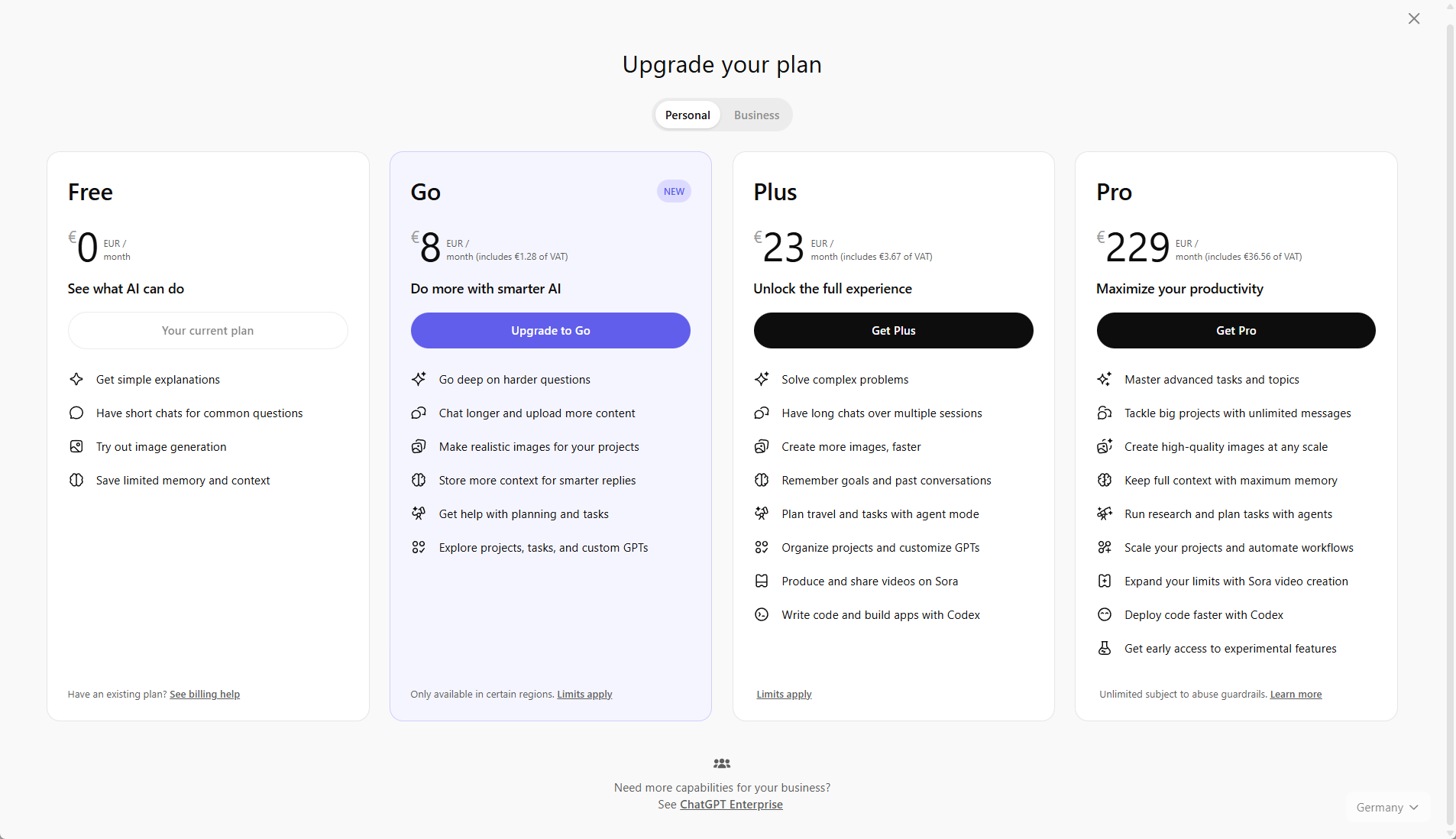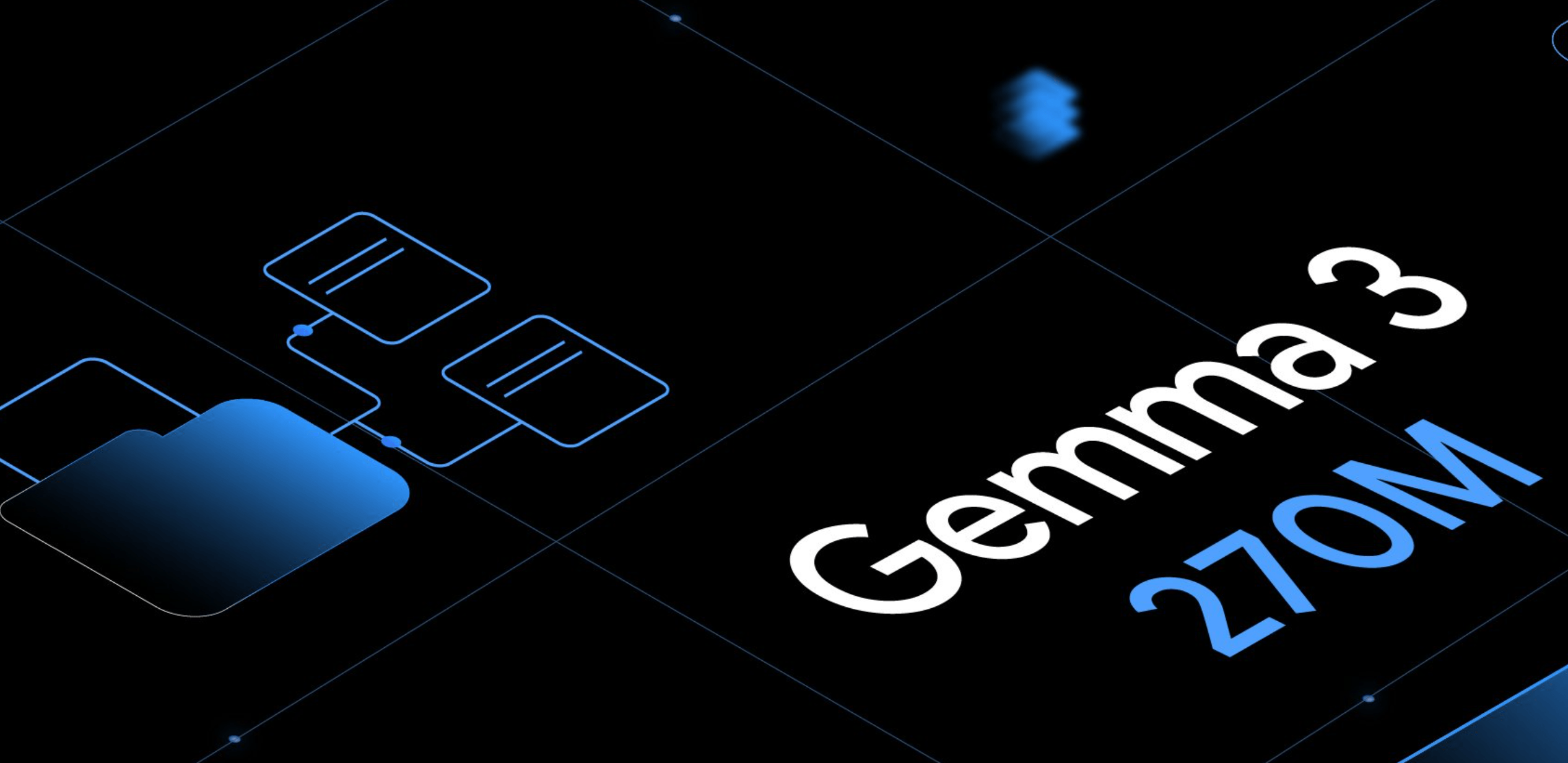Read full article about: OpenAI brings cheaper subscription tier "Go" to more markets
OpenAI is significantly expanding the availability of ChatGPT Go, its budget-friendly subscription tier. Following a launch in India in August, the plan is now available in over 70 additional countries—including markets across Europe and South America—according to an updated support page. In Germany, the service costs 8 euros per month. Beyond extended access to the flagship model, the subscription adds capabilities for image generation, file analysis, and data evaluation, along with a larger context window for handling longer conversations. Users can also organize projects and build their own custom GPTs. However, the plan excludes access to Sora, the API, and older models like GPT-4o.

The broader rollout comes alongside a cost-saving adjustment to how the system handles queries. OpenAI recently removed the automatic model router for users on the free tier and the Go subscription. By default, the system now answers requests using the faster GPT-5.2 Instant. Users must manually switch to more powerful reasoning models when needed, as the automatic routing feature is now exclusive to the higher-priced plans.
Anthropic's AI store makes money while debating eternal transcendence
Anthropic’s autonomous kiosk is finally making money, but not without drama. In the second phase of Project Vend, stronger models, stricter processes, and an AI “CEO” turned losses into profits, while also exposing how easily AI agents can be manipulated, misunderstand authority, or ignore real‑world laws. The experiment shows that structure and guardrails matter more than raw intelligence when AI runs a business.
Read full article about: Meta preps "Mango" and "Avocado" AI models for 2026
Meta is developing new AI models for images, videos, and text under the codenames "Mango" and "Avocado." The release is planned for the first half of 2026, according to a report from the Wall Street Journal citing internal statements by Meta's head of AI Alexandr Wang. During an internal Q&A with Head of Product Chris Cox, Wang explained that "Mango" focuses on visual content, while the "Avocado" language model is designed to excel at programming tasks. Meta is also researching "world models" capable of visually capturing their environment.
The development follows a major restructuring where CEO Mark Zuckerberg personally recruited researchers from OpenAI to establish the "Meta Superintelligence Labs" under Wang's leadership. The market for image generation remains fiercely competitive. Google recently released Nano Banana Pro, an impressive model known for its precise prompt adherence, and OpenAI quickly followed up with GPT Image 1.5 a few weeks later. Most recently, Meta introduced the fourth generation of its Llama series in April and is currently collaborating with Midjourney and Black Forest Labs on the Vibes video feed.
Read full article about: Anthropic publishes Agent Skills as an open standard for AI platforms
Anthropic is releasing "Agent Skills" as an open standard at agentskills.io. The idea is to make these skills interoperable across different platforms, meaning a capability that works in Claude should function just as well in other AI systems. Anthropic likens this strategy to the Model Context Protocol (MCP) and notes that it is already working with ecosystem partners on the project. OpenAI already adopted skills.
The company is also upgrading how skills function within Claude. These skills are basically repeatable workflows that customize the AI assistant for specific jobs. Administrators on Team and Enterprise plans can now manage skills from a central hub and push them to every user in their organization, though individuals still have the option to turn them off.
Creating these skills has also gotten easier: users just describe what they need, and Claude helps configure it. Anthropic has also launched a directory of partner skills from companies like Notion, Canva, Figma, and Atlassian at claude.com/connectors. Developers can find technical documentation at platform.claude.com/docs, and skills are now live across Claude apps, Claude Code, and the developer API.
Comment
Source: Agentskills | Anthropic
Read full article about: Vibe coding app Lovable heralds the "Age of the Builder" following major financing
European AI startup Lovable has raised $330 million in a Series B financing round, bringing its valuation to $6.6 billion. Google led the round, with additional backing from Nvidia, HubSpot, and Deutsche Telekom.Lovable, which allows users to build web applications through simple text prompts, has quickly become one of the fastest-growing startups in the world. The company says its Sweden-based team of 120 employees hit $100 million in annual recurring revenue just eight months after reaching its first million. This follows a massive summer for the company, where it secured one of the largest European Series A rounds on record - raising $200 million at a $1.8 billion valuation.
Lovable calls its mission the "Age of the Builder" - a time when people without coding experience, such as teachers, marketers, or founders, can turn their ideas into working software on their own. Despite its rapid growth, Lovable still trails market leaders like ChatGPT in total user numbers. The space is also becoming increasingly competitive: US rival Cursor recently raised $2.3 billion, highlighting both the intense competition in AI-assisted software development, but also the difference in investment volume.
Read full article about: Mistral OCR 3 promises better, cheaper document analysis
Mistral AI has released Mistral OCR 3, an updated version of its document analysis model. The system goes beyond basic extraction—it can interpret cursive handwriting, dense form layouts, and complex table structures, including linked cells. According to the company, this third version outperforms its predecessor in 74 percent of cases, showing particular strength in handling handwriting, scanned forms, and complex tables. OCR 3 also stacks up well against Deepseek's specialized character recognition model.
The model is available through an API or the Document AI platform introduced in May. Pricing sits at two dollars per 1,000 pages, with discounts available for bulk orders. The French company—which recently secured a large investment from chip manufacturer ASML—is using this release to solidify its position in document recognition, even as its current generation of open-weight language models trails behind commercial competitors from the US.
Comment
Source: Mistral AI
Read full article about: New OpenAI platform teaches newsrooms how to use AI tools
OpenAI is launching a new learning platform for journalists and publishers called the "Academy for News Organizations." Developed in collaboration with the American Journalism Project and the Lenfest Institute, the initiative aims to teach media organizations how to effectively use artificial intelligence. The program offers on-demand training, practical examples for research and translation, and guidance on establishing internal AI guidelines. OpenAI says the goal is to help editorial teams work more efficiently, freeing up time for core journalistic work.
According to OpenAI, the Academy was developed with critical industry issues in mind, including concerns about job displacement and the reliability of AI-generated content. The platform builds on existing partnerships with major publishers like News Corp and Hearst, with plans to expand the offering next year. These educational initiatives might also be an attempt to smooth over tensions in the industry - while OpenAI courts publishers with tools and training, it is simultaneously battling copyright lawsuits from major media companies like the New York Times and Ziff Davis.
Read full article about: OpenAI launches app submissions and rolls out store in the new year
OpenAI has started accepting submissions for ChatGPT apps, which will populate a new directory following a review process. These applications allow users to perform specific actions directly within conversations, such as ordering food. The directory is located in the Tools menu, and users can launch specific apps simply by using the "@" command. While a software development kit (SDK) is currently available in beta, the first batch of tested applications is scheduled to launch in early 2026.
On the security front, OpenAI requires that apps remain suitable for general audiences and request only essential user information. At this stage, developers can link from their ChatGPT apps to external websites or native apps to complete transactions for physical goods. However, the company is exploring additional monetization options—including for digital goods—and notes that it has been collaborating with PayPal for several months. This rollout follows October's Dev Day, where OpenAI introduced the Apps SDK alongside its AgentKit for autonomous AI agents.

